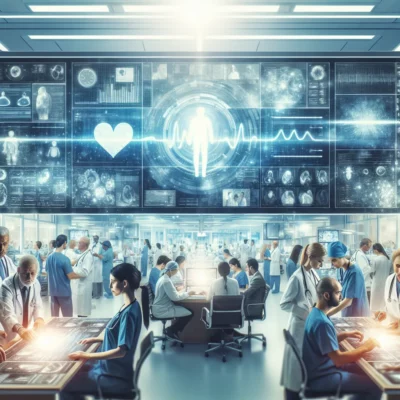In the fast-paced world of healthcare, staying informed is not just beneficial—it’s essential. Real-time patient updates are revolutionizing how patients and healthcare providers interact, leading to improved outcomes, enhanced satisfaction, and more engaged patients. Let’s explore how this wave of information is transforming the healthcare landscape.
The Power of Real-Time Information
Imagine a healthcare environment where patients are never left in the dark. Real-time information is pivotal in such settings, offering timely updates that can significantly impact patient care and outcomes.
- Importance of Timely Updates: In healthcare, time is often of the essence. Timely updates can mean the difference between a swift recovery and prolonged illness. Real-time data ensures that healthcare providers can make informed decisions quickly, which is crucial in emergencies or when managing chronic conditions.
- Transforming Patient Experiences: Real-time data isn’t just about speed; it’s about enhancing the overall patient experience. When patients receive instant updates about their health status, they feel more in control and less anxious about their care journey.
- Role of Technology: The backbone of real-time updates is technology. From electronic health records (EHRs) to mobile health apps, technology facilitates instant communication between patients and providers. These tools ensure that critical information is shared promptly, paving the way for better health outcomes.
Boosting Patient Engagement
Keeping patients informed is a powerful way to boost engagement. When patients are actively involved in their care, the benefits are manifold.
- Informed and Involved: Real-time updates keep patients in the loop, allowing them to participate actively in their care decisions. This involvement leads to better understanding and adherence to treatment plans.
- Psychological Benefits: Being informed reduces anxiety and builds trust between patients and healthcare providers. Patients who understand their health conditions and the steps being taken to address them are more likely to feel at ease.
- Adherence to Treatment Plans: Engaged patients are more likely to follow through with treatment plans. For instance, a patient who receives real-time reminders about medication schedules is less likely to miss doses, leading to better health outcomes.
Improving Patient Satisfaction
Patient satisfaction is a critical metric in healthcare, and real-time updates can significantly enhance it.
- Higher Satisfaction Scores: Patients who receive timely updates are generally more satisfied with their care. They perceive the healthcare system as more responsive and attentive to their needs.
- Perception of Quality Care: Informed patients often have a better perception of the quality of care they receive. When patients feel that their healthcare providers are transparent and communicative, they are more likely to trust the system.
- Testimonials and Case Studies: Numerous case studies highlight the positive impact of real-time updates on patient satisfaction. For example, a hospital that implemented a real-time update system saw a noticeable increase in patient satisfaction scores, with patients expressing appreciation for the transparency and communication.
Overcoming Challenges
Implementing real-time updates is not without its challenges. However, these can be addressed with thoughtful strategies and practices.
- Privacy Concerns: One of the primary concerns with real-time updates is patient privacy. It’s crucial to ensure that all data is securely transmitted and stored, adhering to regulations like HIPAA.
- Technological Barriers: Not all healthcare facilities have the infrastructure to support real-time updates. Investing in robust technology and ensuring compatibility with existing systems is essential.
- Training Healthcare Staff: Effective use of real-time update systems requires training. Healthcare staff must be equipped with the necessary skills to utilize these tools efficiently, ensuring that patients receive accurate and timely information.
Future of Real-Time Patient Updates
The future of healthcare is bright, with emerging technologies set to enhance real-time patient updates further.
- Emerging Technologies: Innovations like artificial intelligence (AI) and the Internet of Things (IoT) are poised to take real-time updates to the next level. AI can analyze vast amounts of data quickly, providing insights that can improve patient care.
- Future Trends: As technology continues to evolve, we can expect more personalized and predictive healthcare experiences. Real-time updates will become more tailored to individual patient needs, leading to even higher engagement and satisfaction.
- Adoption and Adaptation: Healthcare providers must be proactive in adopting these technologies. By staying ahead of the curve, they can offer superior care and meet the growing expectations of patients for real-time information.
The era of real-time patient updates is here, and it promises to transform healthcare for the better. By embracing these changes, healthcare providers can ensure that patients remain informed, engaged, and satisfied throughout their care journey.
